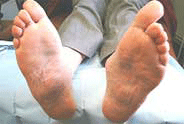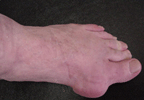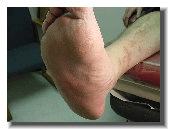Here's a great test I found online - answer the question before you read the answer! Then ask these same questions to your spouse.....see what they don't know! Mine missed over half. Quite the wake up call!
1. Potatoes are a better food for diabetics than ice cream. Yes or No.
The answer is no. Potatoes measure 98 on the glycemic index. Glucose measures 100. Potatoes and some other foods are similar to glucose in the rate that they enter the bloodstream and result in rapid rises of blood sugar. Ice cream surprisingly is about one half the measure of potatoes on the glycemic chart.
2. Whole wheat bread is a lot better for diabetics than white bread. Yes or No.
The answer is no. Whole wheat bread and white bread are about the same on the glycemic chart. The type of fiber in whole wheat bread is mainly called insoluble fiber. This type of fiber is important to the body, but it is not the main type of fiber that slows down blood sugar releasing into the bloodstream. Additionally, whole wheat bread and white bread both metabolize high amounts of glucose into the bloodstream. For both these reasons whole wheat bread is not much better than white bread in the rate which it raises blood sugar.
3. Orange juice is better for a diabetic than carrots. Yes or No.
The answer is yes. Orange juice is twice as low on the glycemic chart as carrots. Another observation is almost all the vegetables like carrots, potatoes, parsley, and others that have parts of the plant that grow below the ground are high on the glycemic index. For example, on the glycemic index only sweet potatoes and yams are moderate. So a rule of thumb might be to avoid eating root vegetables unless you are sure they only raise blood sugar moderately. Also go very easy on fruit juices. Juices can lead to insulin surges. If you want to drink juice consider having it during a meal with fiber. The fiber will slow down the absorption of sugar in the blood. Another way to slow down absorption of sugar from juice is to add multi-fiber supplements to the juice (the body needs different fibers and this is why multi-fiber is advised).
4. Brown rice is much better than ice cream. Yes or No.
The answer is no. Ice cream is about 40% better than brown rice on the glycemic chart. (Many diary products are high in fats. Consider low-fat and non-fat diary products when possible.)
5. Soybeans are about the best food for a diabetic. Yes or No.
The answer is yes. Soybeans are an excellent food for a diabetic. It is about the lowest food on the glycemic chart. In addition, it is high in protein. Diabetics need more protein than a non-diabetic does. For more information read the article "Diabetics Need Additional Protein" and Understanding High Protein Diets for Diabetics". Essentially diabetics are in a chronic catabolic state (a state of constant breakdown) and protein is needed to repair this constant breakdown. Diabetics need more protein to keep up with the rate of breakdown and destruction going on in the body. Soybeans are an excellent way for a diabetic to get protein. Also soybeans are loaded with fiber, including the soluble type that slows down rising blood sugar. Additionally, soybeans may improve thyroid function. This can assist in keeping metabolism high, which can aid in keeping weight off. There are many other benefits of soy products. We recommend a diabetic consider eating soy products at least once or twice a day (except soy sauce and soybean oil, which contain very little soybean protein).
6. Whole-grain rye bread is 40% better for a diabetic than brown rice. Yes or No.
The answer is yes. About the best bread a diabetic can eat is whole grain rye. It is about 40% better for a diabetic than brown rice on the glycemic chart.
7. Russet potatoes are better for a diabetic than fruit. Yes or No.
The answer is no. Russet potatoes act almost as fast entering the bloodstream as glucose. Fruits contain fructose and this is released much slower into the blood than glucose. Fructose on the glycemic chart is a 20. It might be a good idea to use fructose as your sweetener whenever possible. For example, use dried fruit to sweeten cereals and avoid buying cereal with sugar added. Another sweetener diabetics might consider, found at health food stores, is called Stevia. It is an FDA approved "dietary supplement for nutritional benefits." The extracts of Stevia are approximately 30 times sweeter than cane sugar, or sucrose, yet has only 1/300 of the caloric value. It can be used both hot and cold and thus can be used in baking. It is water-soluble.
8. Wholegrain foods are better for diabetics than foods in the bean family. Yes or no.
The answer is no. Beans are much better on the glycemic index than whole grain foods.
9. About the best foods for a diabetic are bread, cereal, potatoes, rice and pasta. Yes or No.
The answer is no. Most bread and starches quickly convert into glucose, which can raise blood sugar levels rapidly. This is not exactly the way people perceive grains. However, grains can lead to weight gain, as well as blood sugar surges. Diabetics need to watch their grain and starch intake carefully. Most grains and starches are high on the glycemic index.
10. Oatmeal is better for a diabetic than corn flakes. Yes or No.
The answer is yes. Oatmeal is about twice as low on the glycemic index than corn flake.
11. Honey is better for a diabetic than fructose. Yes or No.
The answer is no. Honey is nearly the same as glucose on the glycemic index. It is an 87 and glucose is a 100. Fructose is only 20! Beware of honey. It is not a food diabetics can afford to eat often.
12. Brown Rice is better for a diabetic than spaghetti. Yes or No.
The answer is no. Spaghetti is much lower than brown rice on the glycemic index.
13. Diary products are high in sugar. Yes or No.
The answer is no. Diary products are not high on the glycemic index. It is advised on diary products to check the carbohydrates and fat content.
14. Bananas and raisins are better for a diabetic than orange juice. Yes or No.
The answer is no. Orange juice is better than bananas and raisins on the glycemic index. Be careful with juices. The sugars in juices can cause insulin spikes. It is advised to take juices with fiber supplements or fiber meals. Drink only a
little juice per day if necessary.
Just google glycemic index if you want to know. Problem is - you can't force a grown man to eat his veggies!!!
DW
Sunday, January 17, 2010
Subscribe to:
Post Comments (Atom)



No comments:
Post a Comment